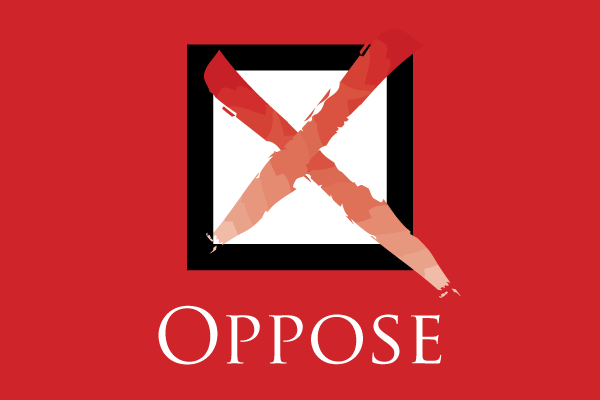A California Chamber of Commerce-opposed bill that exposes employers to costly litigation for inquiring into an applicant’s prior salary even when there is no harm passed its second committee hurdle in the Senate this week.
AB 168 (Eggman; D-Stockton) also penalizes employers for failing to provide a pay scale upon demand, even though the employee has not suffered any harm or wage loss as a result of the violation.
In opposing AB 168, the CalChamber and a coalition of employers have repeatedly pointed out that the bill creates hurdles in the hiring process and already is addressed by existing law.
Last year, the business community negotiated language on a similar proposal to ensure that an employer could not base an applicant’s or employee’s compensation solely on prior salary (AB 1676; Campos; D-San Jose; Chapter 856). AB 1676 was signed and went into effect on January 1, 2017.
The Legislature should allow this new law to have an impact before banning any inquiry into an applicant’s salary history.
Salary Data: Legitimate Uses
The CalChamber and coalition note that there are several legitimate, nondiscriminatory reasons employers seek information about an applicant’s prior compensation.
For example, employers do not necessarily have accurate wage information on what the current market is for all potential job positions. In fact, employers in competitive industries do not advertise salaries in order to utilize their pay structure as a way in which to lure talented employees from their competition.
By requesting salary information, employers can adjust any unrealistic expectations or salary ranges to match the current market rate for the advertised job position. This has worked to the benefit of the applicant/employee.
In addition, salary data can be used as a reference regarding whether the employee’s expectations of compensation far exceed what the employer can realistically offer. Requiring both the applicant and employer to waste time on the interview process which, for highly compensated employees, could be lengthy, to ultimately learn at the end of the process that the employee would never consider taking the compensation offered is unnecessary.
Although AB 168 allows an employee to request a pay scale for the specific position, that mandate raises concerns as well.
As set forth above, an employer may assume a pay scale accurately captures the current market for a specific position, yet could be wrong. Disclosing a pay scale could artificially limit an applicant’s interest in a position.
Employers determine the appropriate wage and salary to pay an applicant based upon various factors, including skill, education and prior experience, as well as the funding available for the job. Employers may feel compelled to enlarge the pay scale to create enough room to adjust that rate depending on the various factors and candidates for the job. Such a broad pay scale will not assist an applicant in negotiations.
Current Protections
In addition to AB 1676 enacted just last year, Labor Code Section 1197.5 was amended in 2015 by SB 358 (Jackson; D-Santa Barbara; Chapter 546) to mandate an employer provide equal wages for substantially similar work.
The CalChamber supported SB 358 after it was amended to clarify ambiguous standards, balancing the payment of equal wages for substantially similar work with maintaining an employer’s ability to control the workforce and pay higher wages for legitimate reasons other than gender.
Moreover, Labor Code Section 232 precludes an employer from preventing an employee from disclosing his/her wages.
The Fair Employment and Housing Act (FEHA) precludes any discrimination in the workplace based upon various protected classifications, including gender.
Added Litigation Avenue
As a part of the Labor Code, AB 168 exposes employers to costly litigation under the Labor Code Private Attorneys General Act (PAGA). Exposing employers to additional threats of litigation, even when the employer pays an applicant equal wages as other employees, is simply unfair.
Key Vote
AB 168 passed the Senate Public Employment and Retirement Committee on July 10, 3-2:
Ayes: Leyva (D-Chino), Pan (D-Sacramento), Portantino (D-La Cañada Flintridge).
Noes: Moorlach (R-Costa Mesa), Morrell (R-Rancho Cucamonga).
The bill will be considered next by the Senate Appropriations Committee.


